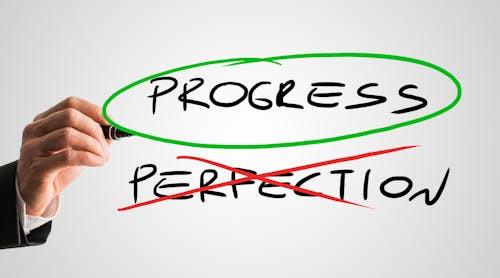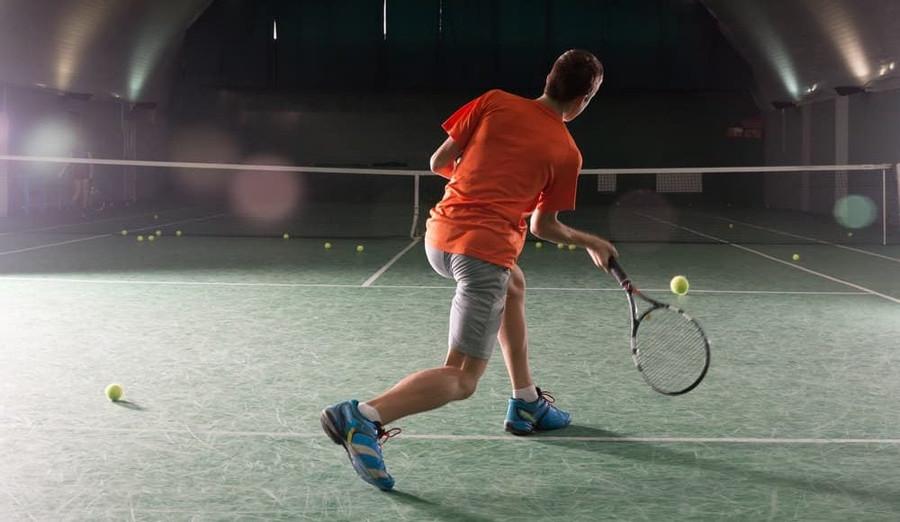12 things quick learners always do (but never talk about)
Curated from: hackspirit.com
Ideas, facts & insights covering these topics:
12 ideas
·61.5K reads
355
10
Explore the World's Best Ideas
Join today and uncover 100+ curated journeys from 50+ topics. Unlock access to our mobile app with extensive features.
Quick Learners Aim For Progress, Not Perfection
While it’s good to strive for high-quality output, that won’t be possible without first having experience. To gain experience, one has to actually get started. After a certain point, you’ve got to get out of the classroom and into the field.
Any progress is good progress when starting out learning something.
Between the amateur and the professional stages, there are hundreds of mistakes. The faster the amateur experiences those mistakes, the faster they’ll become a professional.
536
8.18K reads
Quick Learners Apply What They’ve Learned
Taking notes and knowing about something is different from actually being able to do it.
We can spend all our time discussing what exactly a bicycle is and the mechanics and physics of how it works. But nothing is going to be accomplished until we get on the bike itself and apply what we’ve learned.
Quick learners always translate lessons into action. It can be difficult at times. And there’s no faster way to learn than hopping on and falling down.
487
6.66K reads
Quick Learners Have A Reason For Learning
Studies showed that having not only a self-oriented goal (enjoying one’s future job) but also a “beyond-the-self-oriented” goal (having a positive impact on the world around them) increased the students’ GPA in their academic career.
Knowing what exactly the skill is going to be used for will not only sustain motivation but make it clearer what information is useful and what isn’t, making the learning process that much faster.
453
6.26K reads
Quick Learners Simplify Information
Quick learners commonly use the learning method called “Chunking”. Essentially, it involves breaking down large pieces of information into manageable and meaningful groups, called “chunks”.
It might seem counterproductive to break information down into small, and thus more, lessons to learn. But it makes it easier for your mind to encode the information while also ensuring high-quality results.
495
5.69K reads
Quick Learners Look For Immediate Feedback
The greatest lessons don’t come from professors and reading assignments; they come from action. Specifically, it’s the feedback gained from taking action where someone really gets to learn something.
The key term here is “immediate”. If someone doesn’t get the feedback that they need as early as possible, they risk continuing on with the work, not knowing if their process works or not.
436
5.13K reads
Quick Learners Make Mistakes
As discouraging as they can get, it’s the lessons learned in those failures that are the most lasting. Being a beginner, it’s also expected to make mistakes.
Quick learners trust their gut and make as many mistakes as they can. Not intentionally, of course. But they welcome each one as a valuable lesson to learn.
424
4.64K reads
Quick Learners Ask Others For Help
- There’s nothing wrong with asking for help. Sometimes, it’s exactly what’s needed to boost learning.
- While figuring out something on your own can be more rewarding, asking for guidance from an expert can still be beneficial for quick learners.
- That way, they can guide you on the right path, helping you to avoid spending your time on activities that they’ve tried and found useless.
400
4.29K reads
Quick Learners Have A Consistent Learning Routine
Lessons aren’t learned in a single day. To learn as fast they can, quick learners practice often.
Studies found that consistency in learning plays a significant role in one’s understanding and proficiency. This is the athlete going to regular training. The musicians going to rehearsals. The writers developping a writing habit.
The more you do something, the better you get at it.
460
4.26K reads
Quick Learners Have A Memorization Technique
When learning something, there is often a set of steps that need to be remembered in order to perform it well. Those procedures can vary depending on what’s being learned.
The human mind has difficulty holding on to disparate pieces of information. It’s why remembering a stranger’s number can be tricky.
That’s why there are people that employ the use of a mnemonic device. By turning the steps into an easier-to-remember acronym, a study found, quick learners are able to use the power of mnemonics to improve their recalling ability and memorization.
433
4.19K reads
Quick Learners Are Active Listeners
You can’t learn without first listening to a mentor, teacher, professor — anyone who’s guiding you. When quick learners listen to their instructors, they listen carefully to their instructions.
Through active listening, they are able to catch all the necessary information so that they may absorb it and implement it in their work.
413
3.98K reads
Quick Learners Admit To Not Knowing Everything
Being a quick learner doesn’t mean having to learn everything. You don’t need to study the history of the printing press and literature to be an acceptable writer.
When someone’s starting out in learning something, they only need to really know the essential parts of the skill — the parts that they’re actually going to be using.
396
3.99K reads
Quick Learners Visualize The Problem And The Solution
- Skills don’t usually exist in a vacuum. Where there is a skill, there’s a place for it to be applied. A study found that visualizing the solution can accelerate learning. It allows us to have a clear end result to work towards.
- Visualizing how they intend to use the skill allows quick learners to sift through what skills will contribute to the solution and what won’t.
- That way, they know what to prioritize, and be strategic in their learning.
430
4.17K reads
IDEAS CURATED BY
Maryadonna 's ideas are part of this journey:
Learn more about career with this collection
Cultivating a growth mindset and embracing challenges
Developing adaptive thinking and problem-solving skills
Effective learning frameworks and approaches
Related collections
Similar ideas
8 ideas
The No BS Guide to Becoming a Fast Learner
verbalicity.com
10 ideas
9 things high-achievers always do before 8 am
hackspirit.com
8 ideas
Habits of Super Learners
medium.com
Read & Learn
20x Faster
without
deepstash
with
deepstash
with
deepstash
Personalized microlearning
—
100+ Learning Journeys
—
Access to 200,000+ ideas
—
Access to the mobile app
—
Unlimited idea saving
—
—
Unlimited history
—
—
Unlimited listening to ideas
—
—
Downloading & offline access
—
—
Supercharge your mind with one idea per day
Enter your email and spend 1 minute every day to learn something new.
I agree to receive email updates







